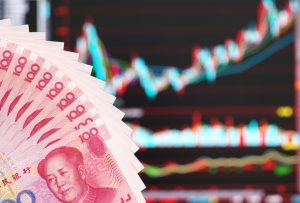Beijing’s decision last week to bail out a metals billionaire from a disastrous “short position,” and in doing so tarnish the credentials of the once respected London Metals Exchange, will not soon be forgotten. Even before the latest incident, Western investors were looking at the painful reality of losses they face when it comes to blindly betting big on investments in authoritarian regimes who consider themselves above established rules.
The Chinese billionaire in question is Xiang Guangda, the founder of China’s leading stainless steel and nickel producer Tsingshan Holding Group worth $4.1 billion. Earlier in March, Tsingshan Holding Group was set to face $8 billion in losses after the price of nickel doubled to over $100,000 a ton. Xiang, fondly referred to as “big shot,” had staked a sizable amount of his personal fortune shorting nickel, only to see the price of the metal surge to as much as 111 percent as a result of the ongoing economic fall-out of Russia’s war in Ukraine.
In normal times a mistake of this magnitude would put Xiang’s personal fortune and the fortunes of Tsingshan Holding Group in deep trouble. Luckily for him, he has powerful friends in Beijing and the London Metal Exchange was bought out in 2012 by the Hong Kong Stock Exchanges and Clearing.
These two facts no doubt influenced the London Metal Exchange’s unprecedented decision on March 8 to suspend nickel trading in a move not seen since 1985, canceling 5,000 nickel trades that had been executed that day, and wiping out $1.3 billion of profit and loss on deals. The next day Shanghai’s Futures Exchange followed suit and also froze nickel trading.
Bloomberg reported that one of Tiangshan’s brokers, a unit at China Construction Bank, “narrowly missed defaulting after the LME gave it more time to pay hundreds of millions of dollars of calls.”
It has been reported that the Chinese government is backing Xiang and Tsingshan Holding Group to the hilt, ordering domestic banks to provide further loans. Some reports say China may even consider swapping Tsinghan’s nickel for high-quality reserves held by the Chinese state. Xiang has said that with his government’s backing he intends to hold onto his short position, with the potential even now to turn his folly into further fortune.
The possibility of Xiang extricating himself from this position will be a further red flag for those investors who believe that the London Metal Exchange crossed a line by suspending trading and giving up its neutrality in favor of a particular market participant. AQR, one of the largest funds in the world, is already exploring legal options after its trading profits were wiped out.
Sadly, the metals exchange may have lost its neutrality some time ago. Since being bought by Hong Kong Stock Exchanges and Clearing, whose largest shareholder is the Hong Kong government, which appoints six of its board members, in 2012 the London Metal Exchange has increasingly relied on business from Chinese state-owned banks and state supported companies.
During Xi Jinping’s state visit to the United Kingdom in October 2015, the metals exchange signed a memorandum of understanding with seven Chinese financial institutions, including state-run banks – the Bank of China and the Industrial and Commercial Bank of China – to increase market access and provide renminbi internationalization service as part of the Belt and Road Initiative. In April 2016, China Construction Bank acquired a 75 percent stake in MetDist; this made it the first majority-owned Chinese bank to trade on the exchange floor.
For those of us who follow Hong Kong politics closely this is characteristic of Beijing’s co-option of capital and businesses that are dependent on Communist Party patronage. In 2021, a report by Hong Kong Watch detailed that despite widespread reservations about the quality of mainland audit firms, the Hong Kong Stock Exchange was forced to allow mainland auditors to audit the mainland incorporated companies listed on the Stock Exchange in 2010. In many ways this move over the years has increasingly compromised the city’s regulatory regime.
With rising metal prices, the strategic value of the London Metal Exchange cannot be understated. China dominates global markets as the largest consumer of copper, aluminum, and iron ore. Both domestic growth and the growth of its influence overseas through building infrastructure projects in the developing world as part of the Belt and Road are heavily dependent on its ability to secure metals.
At the intersection of these interests lies Xiang’s Tsingshan Holding Group, which supplies large volumes of nickel to electric vehicle battery manufacturers at home, and is one of China’s flagship companies delivering Belt and Road projects across abroad. With recorded company revenue of $19 billion last year and a sprawling business empire that makes Xiang’s family one of the wealthiest and most powerful in Zhejiang, is it any wonder that Beijing believes Xiang is simply big to fail?
The Financial Conduct Authority and the Bank of England helped the London Metal Exchange to restart nickel trading last week, as well as looking at reforms, which may include banning short positions. However, the specter of Beijing looms large and the legal battles over the protection afforded to Xiang will rage on. This will pull the credibility of the metals exchange further into disrepute.
With Beijing’s unwavering support, this “big shot” could still make out like a bandit, reinforcing the depressing reality of who really controls this exchange and has the power to control the metals industry.
It is a further lesson for those alarmed by the growing influence of authoritarian regimes in the financial services industry.































